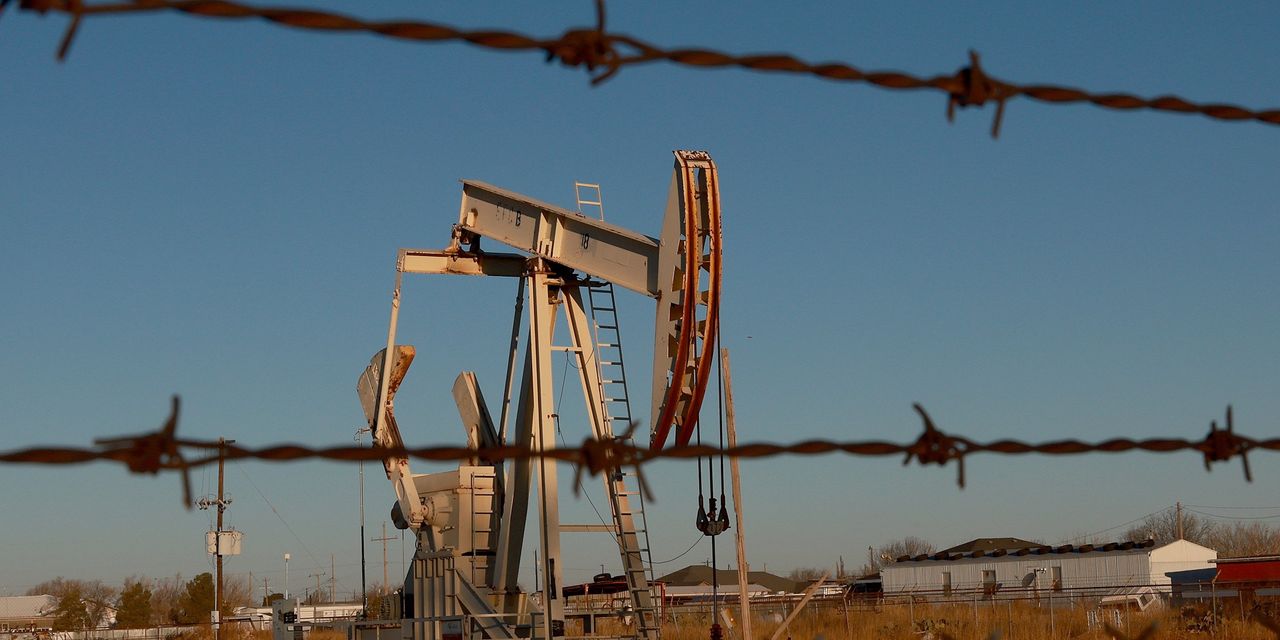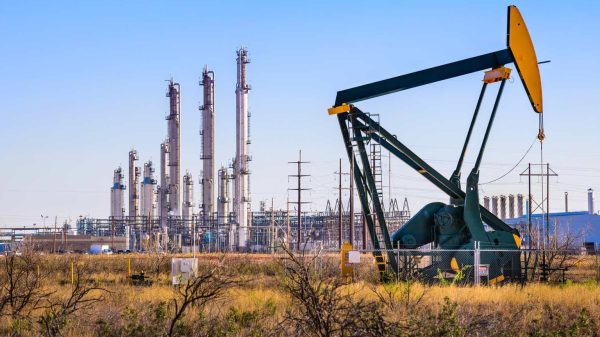Oil futures headed lower Wednesday for a second session in a row, with traders awaiting any sign the Israel-Gaza war will spill over to threaten crude supply.
Price action
-
West Texas Intermediate crude
CL00,
-2.44%
for November delivery
CL.1,
-2.44% CLX23,
-2.44%
fell $1.20, or 1.4%, to $84.77 a barrel on the New York Mercantile Exchange after posting a 0.5% loss on Tuesday. -
December Brent crude
BRN00,
+0.44% BRNZ23,
+0.44% ,
the global benchmark, was off 95 cents, or 1.1%, at $86.70 a barrel on ICE Futures Europe, a day after losing 0.6%. -
November gasoline
RBX23,
-1.84%
declined by 0.6% to $2.244 a gallon, while November heating oil
HOX23,
-0.49%
lost 1.1% to $2.9866 a gallon. -
Natural gas for November delivery
NGX23,
-0.30%
traded at $3.273 per million British thermal units, down 3.2%.
Market drivers
Oil futures were lower for a second straight day after spiking more than 4% on Monday as traders reacted to the weekend attack by Hamas that prompted a declaration of war by Israel.
Israel isn’t a major oil producer, but investors are focused on whether the conflict escalates. The Wall Street Journal on Sunday reported that Iranian military officials helped plan and coordinate the Hamas attack. White House national security adviser Jake Sullivan has described Iran as “complicit” in the attacks, having long provided funding and training to Hamas, but has said the U.S. so far hasn’t had confirmation Tehran had advance knowledge of the attack.
Iranian oil exports fell sharply after the Trump administration withdrew the U.S. from a nuclear accord with Tehran in 2018 and reimposed sanctions. Production and exports have since recovered partially, with output hitting 3.1 million barrels a day this summer, according to data cited by Commerzbank. Exports were estimated to have recovered to around 2 million barrels a day.
“Before the attacks, the U.S. had adopted a softer posture toward Iran, allowing it to approach pre-2018 levels of oil production,” said Hakan Kaya, senior portfolio manager at Neuberger Berman, in an emailed blog post. “However, given recent events and Iran’s known support for Hamas, the U.S. may adopt a stricter stance, potentially leading to a reduction in Iranian oil supply.”
The recent attacks, meanwhile have also decreased the changes of a “near-term normalization of Saudi-Israeli relations,” Kaya said, noting that before last weekend’s developments, Saudi Arabia has reportedly expressed willingness to boost oil production if crude prices remained high.
The latest developments “could potentially affect Saudi oil production plans, leading them to extend their existing cuts for a longer period, which could further deplete already low global oil inventories,” he said.
Read: Here’s what Israel-Gaza war means for oil prices as fighting continues
In a note, analysts at ING wrote that “if the conflict is contained to Israel and Hamas we would expect the current risk premium to slowly erode. However, there is still a risk that this escalates, particularly if there is any Iranian involvement.”
Under that scenario, stronger enforcement of U.S. sanctions on Iranian oil would tighten up the oil market through 2024,” they said.
Brent and WTI in late September hit 2023 highs above $90 a barrel on concerns over a growing supply deficit, but retreated sharply last week.
Meanwhile, energy traders digested news that Exxon Mobil Corp.
XOM,
plans to buy Pioneer Natural Resources Co.
PXD,
for about $59.5 billion in stock.
Read the full article here











